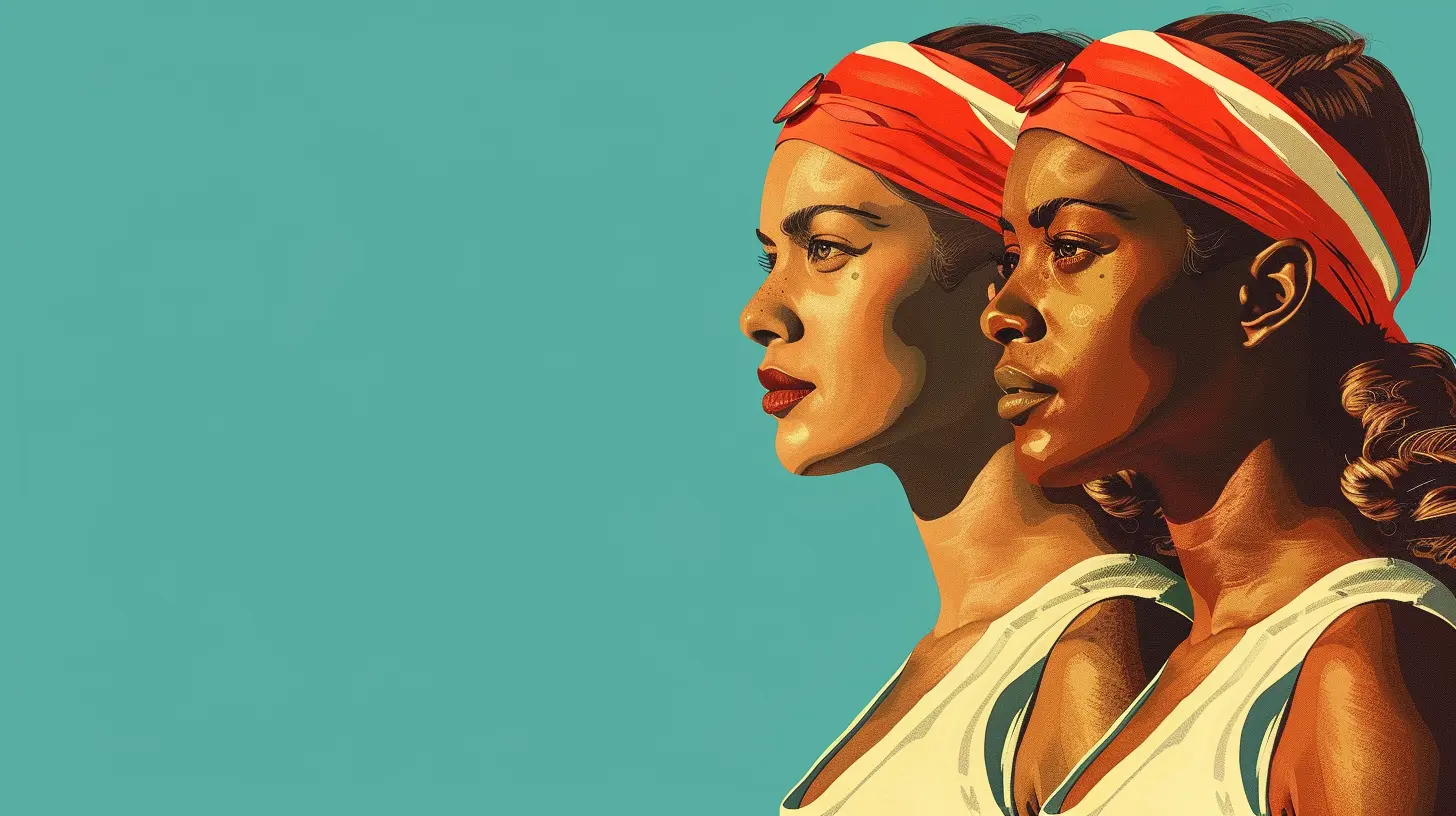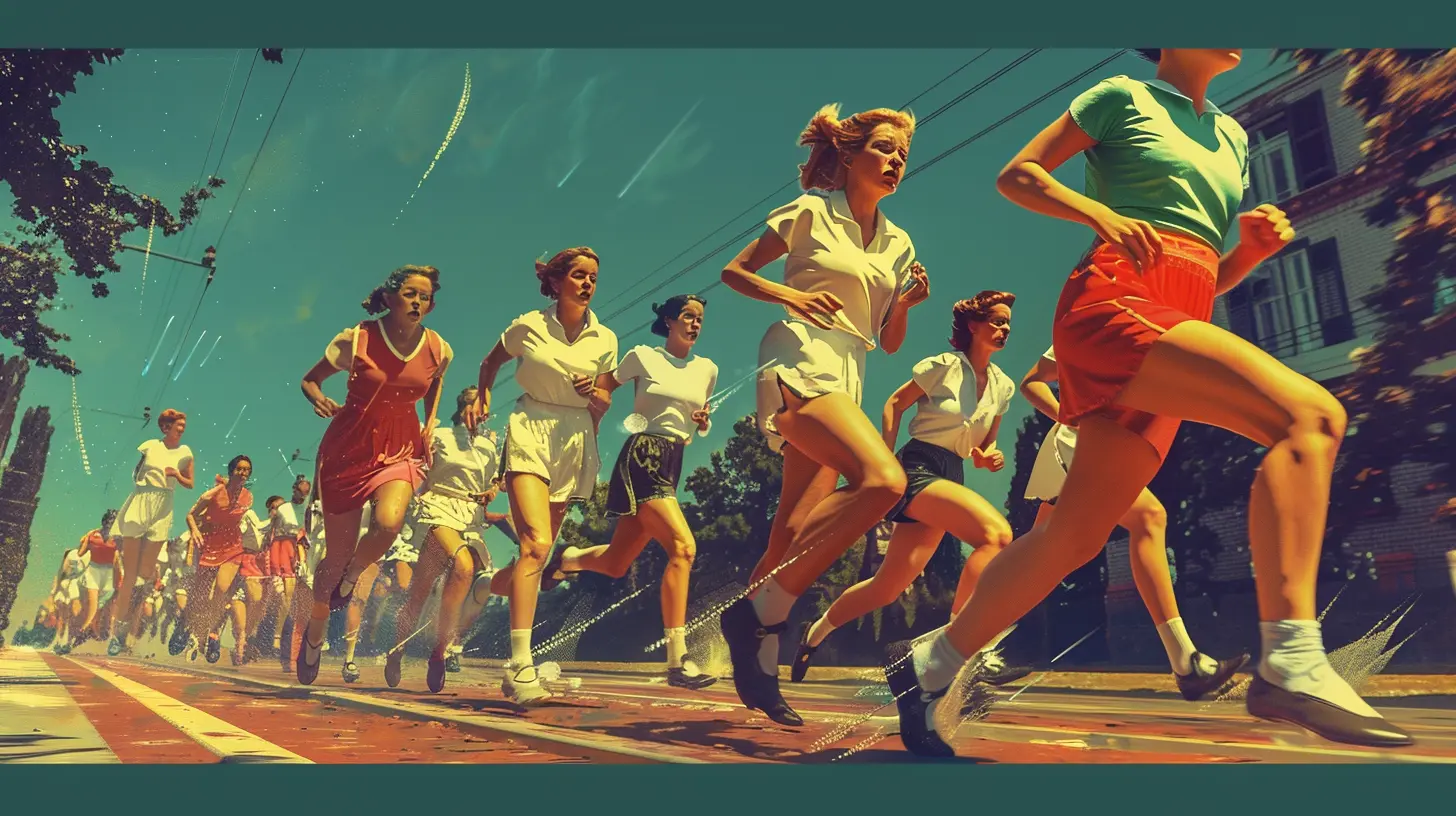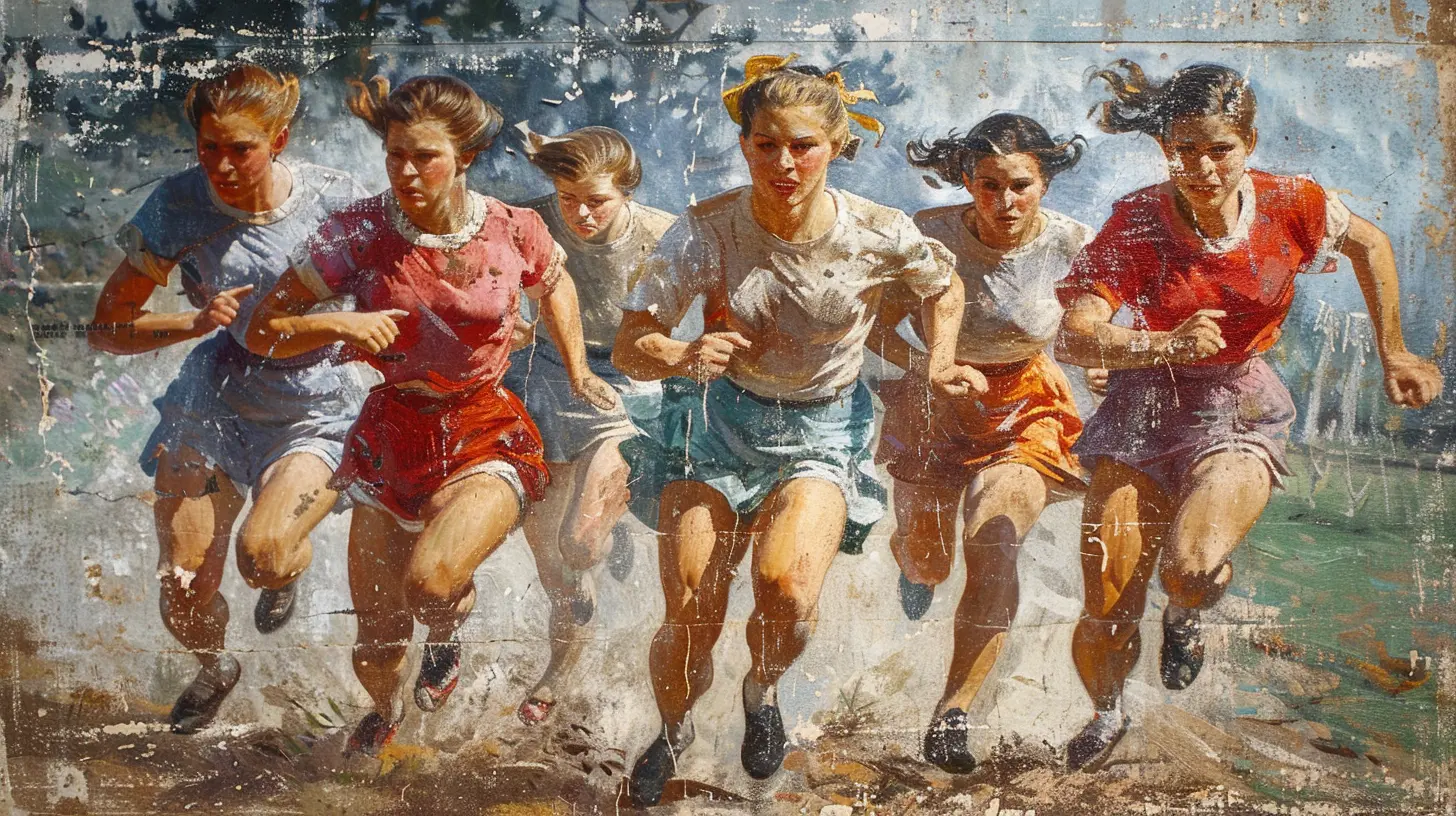The Untold Story of Women in Early Olympic Games
9 November 2025
When we think of the Olympics today, it's hard not to imagine the powerful presence of female athletes dominating the world stage. From Simone Biles to Serena Williams, women have made their mark in nearly every sport imaginable. But what about the early days? The Olympics weren't always so welcoming to women, and the story of their inclusion is as fascinating as it is untold. Buckle up, because we're about to dive into the incredible journey of women in the early Olympic Games – a saga filled with struggle, perseverance, and a whole lot of guts.

A Man's World: The Ancient Olympic Games
Let’s start at the very beginning. The Olympic Games, as we know them, date back to ancient Greece around 776 BC. But guess what? Women were nowhere near the sporting arenas. In fact, they weren't even allowed to watch the games, let alone participate. The Olympics were a male-dominated event where only men competed in a variety of sports, from wrestling to chariot races. Women were not just excluded; they were explicitly banned from attending!The ancient Greeks believed in the superiority of men in physical and intellectual pursuits. As such, the Olympics were seen as a way for men to showcase their strength, endurance, and overall excellence. Women, on the other hand, were relegated to roles that society deemed more "fitting" for their gender – nurturing, domestic responsibilities, and child-rearing.
But, did women just sit back and accept this? Absolutely not.
The Heraean Games: Women's Ancient Olympics
Here’s a little-known fact: Ancient Greek women had their own games – the Heraean Games. Yep, you read that right! These games were held in honor of Hera, the wife of Zeus. While the events were far more limited compared to the male-dominated Olympics, it was a space where women could compete. Their primary event? Running. The races were divided by age groups, and the participants ran in shortened tunics, with their hair flowing loose.It’s a far cry from the grand spectacle of the male Olympics, but it was a start. The Heraean Games were a small yet significant rebellion against the societal norms of the time. These women weren’t about to be completely sidelined.

The Modern Revival: Enter Pierre de Coubertin
Fast forward to the late 19th century. In 1896, the modern Olympic Games, spearheaded by Frenchman Pierre de Coubertin, made their grand debut in Athens. Now, you might be thinking, “Surely women were included this time around, right?” Wrong.De Coubertin, the so-called "father" of the modern Olympics, was adamant that the games remain an all-male affair. He famously stated, "The inclusion of women would be impractical, uninteresting, unaesthetic, and incorrect." Ouch. His vision was for the Olympics to reflect the ancient traditions, which, as we already established, were not exactly female-friendly.
So, in 1896, the first modern Olympics were held, and – surprise, surprise – there were no women participants.
The Persistent Push for Inclusion
But women didn’t take no for an answer. Just four years later, in the 1900 Paris Olympics, the doors were cracked open ever so slightly. Women were allowed to compete – but only in a few elite, "feminine" sports like tennis, golf, and croquet. Out of 997 athletes, only 22 were women. It wasn’t exactly an overwhelming victory, but it was a foot in the door.And once women got a foot in, they weren’t about to back down.

The Early Female Trailblazers
The early 20th century saw the rise of trailblazing women who defied expectations and fought their way into the Olympic spotlight. These were the pioneers who paved the way for the female athletes we see today.Charlotte Cooper: The First Female Olympic Champion
In 1900, British tennis player Charlotte Cooper made history by becoming the first female Olympic champion. She won gold in both the singles and doubles events, and her victories sent a powerful message: women belonged in the Olympics. Cooper’s success was a landmark moment, but it wasn’t without its challenges. Women were still viewed as a sideshow, and their achievements were often downplayed compared to their male counterparts.Hélène de Pourtalès: Breaking Barriers in Sailing
Another early trailblazer was Hélène de Pourtalès. She became the first woman to win a gold medal in a mixed-gender event – sailing. Competing as part of a team in the 1900 Olympics, she showed that women could excel in sports traditionally dominated by men. Her victory challenged the perception that women were only capable of competing in "delicate" sports like tennis or croquet.Alice Milliat: The Woman Who Refused to Take No for an Answer
Now, if there’s one name you should remember in the story of women in the Olympics, it’s Alice Milliat. This Frenchwoman was a force to be reckoned with. Frustrated by the lack of opportunities for women in the Olympic Games, she took matters into her own hands. In 1921, Milliat founded the Women's World Games, an international sporting event exclusively for female athletes. The success of these games was undeniable, and the growing popularity of women’s sports put pressure on the International Olympic Committee (IOC) to expand their inclusivity.Thanks to Milliat and her relentless advocacy, more and more women’s events began to be added to the Olympic program throughout the 1920s and 1930s.

The Battle for Equality
The road to full equality in the Olympic Games was a long and bumpy one. Even as women began to participate in more events, they were often met with resistance, ridicule, and outright discrimination.The 1928 Amsterdam Olympics: A Milestone for Track and Field
One of the most significant milestones in the fight for gender equality came in 1928, when women were finally allowed to compete in track and field events at the Amsterdam Olympics. This was a major breakthrough, as track and field was considered one of the most prestigious and physically demanding areas of the games.However, it wasn’t without controversy. During the 800-meter race, several women collapsed from exhaustion after crossing the finish line. This led to a widespread outcry that running such long distances was too dangerous for women. As a result, the IOC banned women from competing in distances longer than 200 meters for the next 32 years! It wasn’t until 1960 that women were allowed to run longer distances again.
Women’s Rights and the Olympic Movement
As the women’s rights movement gained momentum in the mid-20th century, so too did the push for greater gender equality in sports. The 1960s and 1970s saw a growing demand for more women’s events to be added to the Olympic program. Women like Wilma Rudolph, who won three gold medals in sprinting at the 1960 Rome Olympics, became symbols of female athletic excellence and helped shift public perception.It wasn’t until 1984, however, that women were finally allowed to compete in the marathon – one of the most grueling and iconic events of the Olympic Games. American runner Joan Benoit won the gold medal, proving once and for all that women were more than capable of competing in endurance sports.
The Modern Era: A Level Playing Field?
Today, women compete in nearly every event that men do, and the Olympic Games have made significant strides toward gender equality. In the 2012 London Olympics, for the first time in history, every participating country included female athletes on their teams. And in the 2020 Tokyo Olympics, women made up almost half of all participants.But while we’ve come a long way, the fight for full equality isn’t over. Women still face challenges in terms of media coverage, sponsorship opportunities, and prize money, among other issues. The Olympics, like many other sports institutions, continue to wrestle with the legacy of gender discrimination.
Conclusion: The Spirit of Perseverance
The untold story of women in early Olympic Games is a testament to the power of perseverance. From the Heraean Games to Joan Benoit’s historic marathon victory, women have fought tooth and nail to earn their place in the world’s greatest sporting event. And while there’s still work to be done, one thing is clear: women aren’t going anywhere. They’ve earned their place on the Olympic stage – and they’re here to stay.So, the next time you watch the Olympics and see a female athlete breaking records, remember the incredible journey that got us here. It’s a story filled with determination, courage, and an unwavering belief that women belong in the world of sports, just as much as men.
all images in this post were generated using AI tools
Category:
Sports HistoryAuthor:

Nelson Bryant
Discussion
rate this article
1 comments
Zareth Rosales
Fascinating topic! I wonder what challenges these pioneering women faced in a predominantly male-dominated event.
November 15, 2025 at 3:39 AM

Nelson Bryant
Thank you! The challenges included societal norms that discouraged female participation, limited opportunities for training and competition, and often facing skepticism and hostility from male counterparts and officials.


